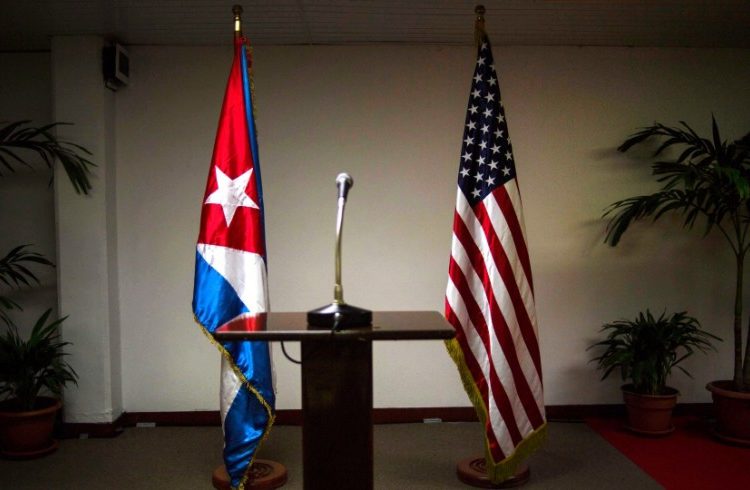On Friday October 14 Cuba and the United States held a second round of talks on human rights, one of the most sensitive topics on the bilateral agenda since the 17D announcements.
The focus of the exchange was a balance between civil and political rights and economic, social and cultural rights.
In the press release issued by the Cuban side, it was said that the island is a signatory of 44 out of the 61 international instruments recognized on the subject of protection of human rights, “while the United States has only assumed obligations in 18 of these instruments.”
Other topics of concern for the Cuban delegation were “the wage inequality between men and women, discrimination against migrants and other minorities, the low level of workers’ unionization and the restrictions for this, child labor and the growing and serious manifestations of racism and racial discrimination.”
“We know we are not a perfect country,” State Department Assistant Secretary of State for Democracy, Human Rights, and Labor Tomasz Malinowski, the official heading the U.S. delegation, said at a meeting with the press one day after the meeting.
“We are not hiding anything, and we keep abreast of which are the challenges for the United States. We also insist in that U.S. citizens have the mechanisms to bring to light those problems and seek solutions,” he added.
He said that occasionally in the discussion the Cuban authorities (headed by Pedro Luis Pedroso, assistant general director of multilateral affairs and international law of the Foreign Ministry) mentioned the embargo. “Of course our answer is that we are taking every possible step” to lift it.
According to Malinowski, his delegation got to the meeting “without great expectations,” but focused on “how to have useful talks for both parties.” Compared to the previous meeting, he said, this time we went into further details, while before only topics of interest were placed on the table.
“This was a more serious and detailed discussion about how these processes function in Cuba and in the United States. We were able to ask many questions, which is not always possible in our interactions and it is something we are thinking about continuing to build on,” he said before adding that there were restrictions in terms of the topics they could deal with.
They talked about arbitrary arrests, preventative detentions, NGOs’ registration in Cuba, elections, among other matters.
“The exchange ratified the profound differences that exist between both governments with respect to conceptions and the exercise of human rights,” but the parties insisted on their political will of “relating in a civilized way within the recognition and respect for those differences, and dealing with any issue in a framework of equality, respect and reciprocity.”
The U.S. secretary affirmed that they hope to “bring about interactions and connections,” for which he expects the U.S. will take “the necessary steps” to withdraw any restriction, and that, for its part, the Cuban government will do the same.
The first round of talks on human rights was held in Washington on March 31, 2015. According to reports after its holding, on that occasion a climate of professionalism and respect predominated, although it was already a fact that there were differences in dealing with human rights, from the national point of view as well as its treatment in the international sphere.
This meeting took place in a context marked by the recent visit to Cuba of Jill Biden, wife of U.S. Vice President Joseph Biden, who came accompanied by U.S. Ambassador-at-Large for Global Women’s Issues Catherine Russell and Assistant Secretary of State for Educational and Cultural Affairs Evan Ryan. Her trip’s goal was to get to know the Cuban experiences on education and culture and to promote the importance of women’s economic empowerment.
Ever since the announcement of the reestablishment of relations between both countries almost two years ago, Havana and Washington have held talks on numerous subjects of bilateral and multilateral interest, while a dozen agreements on topics like the environment, postal service, direct regular flights, trade and telecommunications, among others, have been signed.
TN: Malinowski quotes were translated from the Spanish version.










